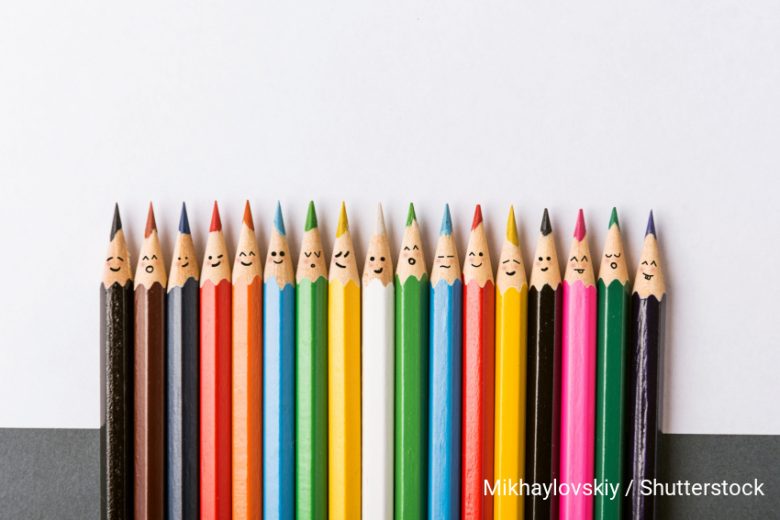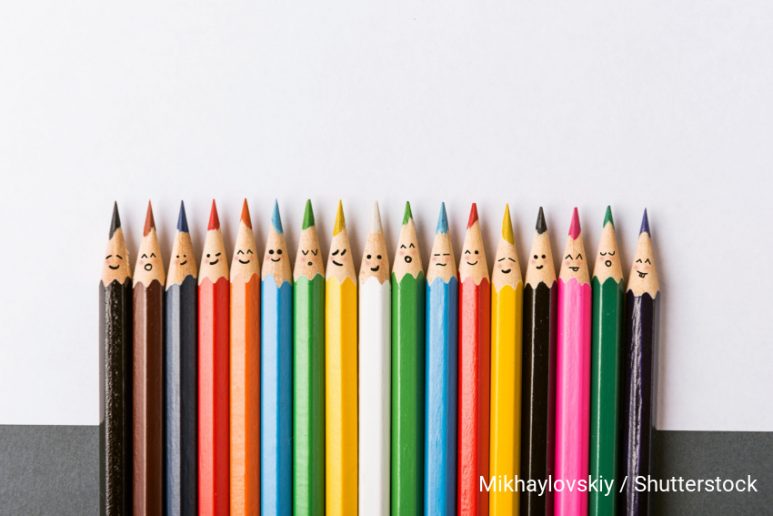By Hannah Ajala
In a year where numerous global organisations like MDI work towards shaping the narrative of a more inclusive and diverse media, it is also important to continue to highlight the work of other organisations also pushing for more equality and support for marginalised communities, however big or small the scale is.
Black British Lives Matter

The book and podcast, Black British Lives Matter, is created and presented by Sir Lenny Henry and Marcus Ryder, consisting of essays from 19 prominent Black figures, including historian David Olusoga, UK Labour MP Dawn Butler, and Baroness Doreen Lawrence, the mother of the late Stephen Lawrence.
The uniqueness of each essay presents itself as a combination of personal experiences faced by each author, shedding light on issues that Black individuals in the UK often face.
British MP Dawn Butler goes into detail about ‘the smattering of Black and Asian representation in overwhelmingly white institutions such as parliament, arguing that, as a result, minorities can easily be pitted against each other. Too often there is “one person of colour to argue for a policy that would deny their own parents’ entry into the UK versus another politician of colour arguing for policies that would benefit other people of colour”. A “critical mass” of Black politicians would avoid this.’
Recognising Black British experience within the Black Lives Matter movement, nineteen Black figures explain why Black lives should be celebrated when too often they are undervalued. Drawing from personal experience, they stress how Black British people have unique perspectives and experiences that enrich British society and the world; how Black lives are far more interesting and important than the forces that try to limit it. Every author in this is doing pioneering work also.
Before the release of this book and podcast, The Sir Lenny Henry Centre for Media Diversity was established in 2020 as a research centre with the aim to bring together the expertise of established media professionals and academics.
The Centre believes that accurate representation of all sections of society in all layers of the UK media is vital. Involved in the Centre are Sir Lenny Henry, Professor Diane Kemp, Marcus Ryder MBE and Marverine Duffy, all leading figures in the efforts to increase diversity and inclusion in the UK media industry.
Career Girl Collective
Think of this platform as a beginner friendly entry into journalism for all women and girls. Topics such as launching a freelance writing career, latest jobs and interview preparation is what you’ll often see across the social channels of Career Girl Collective. In the world of journalism and breaking into the industry, it can often seem for many new starters as a daunting experience. Especially women.
In a study taken out in 2021, Press Gazette found that for the first time the Labour Force Survey data suggests there are more women (53%) in journalism than men. Previously the industry was made up of 54% men in 2018 and 56% in 2016. The UK workforce is 48% women overall. Despite this, issues like unequal pay and sexism in journalism remain.
Career Girl Collective founder Lateefah Jean-Baptiste, is a freelance journalist and PR professional. She describes Career Girl Collective as a newly established platform that aims to educate and empower women writers.
Another statement issued by UK parliament highlighted the origin of gender imbalance in journalism:
“There have long been concerns about the representation of women in television and radio news and current affairs broadcasting with respect to employment, casting and participation. Studies have focused on two key issues: the first is the representation of women who work within the broadcasting industry on news and current affairs—either on air (as presenters or reporters) or behind the scenes (in newsgathering production or corporate affairs). The second issue is the representation of women as experts on news and current affairs programmes.”
Having platforms that empower women, especially considering the fluctuating statistics of women in media, is crucial, as it provides a safe space to enable them with the confidence to navigate the media industry whether in entry level or higher roles.
Sistah Space
Sistah Space is a female support and empowerment community and platform founded by Ngozi Fulani in 2015, following the 2014 murder of Valerie Forde and her daughter. Sistah Space is community-based non-profit initiative created to bridge the gap in domestic abuse services for African heritage women and girls.
This close-knot community recently caught a strong wave of headlines due to a race row with the Royal Family. The charity attracted attention in November 2022 when its founder Ngozi Fulani alleged that she had been subject to racist questioning by Lady Susan Hussey, a royal staff member, at a Buckingham Palace function.
Sistah Space founder Ngozi Fulani was asked where she is “really” from by Lady Susan Hussey, Queen Elizabeth’s lady-in-waiting and Prince William’s godmother, at a palace event. Lady Susan quit her job over the affair.
Since then, Sistah Space has been abused over social media and caused the domestic violence charity to temporarily stop its work.
The ‘Valerie’s Law’ petition started by charity Sistah Space was backed throughout the UK by popular figures such as Michaela Coel and FKA twigs – and signed by more than 100,000 people. Even today, people are being encouraged to write to their MPs to show support for this proposed law. In times like these, it’s crucial to highlight the work this award-winning charity has achieved, like building a nationwide community of women and providing tangible solutions, safety and empowerment tips whenever facing any sort of domestic abuse.
Words of Colour
Words of Colour was founded by Joy Francis and Nicole Moore in 2005 “as a community partnership to nurture and train ‘a new generation of writers from racially and culturally diverse communities’ to enable their work to be published and performed.” Since its beginning Words of Colour has helped authors, journalists, poets and more people in the media and arts launch successful careers.
In 2022 relaunched as The Immersive Change Agency Words of Colour. It partnered with the Museum of Colour and Renaissance to co-curate My Words, the UK’s first Digital Poetry Gallery featuring black poets and poets of colour spanning 250 years.
A study published in 2018 found that “an overwhelming majority of UK and Irish poetry magazines are failing to meet even the most basic measurements of inclusivity should give some indication of the extent of the problem, and the scale of action necessary”. For poet and academic Sandeep Parmar who commissioned the report “there has to be enough critical attention paid, and the right kind of critical attention – critics who are knowledgeable about race and knowledgeable about culture and identity and belonging.”.
My Words “provides an opportunity to meet some of the remarkable poets of colour who have changed the poetic landscape and influenced all the culture that we enjoy today. We bring you voices from the 18th and 19th century through to 2016. We hope that you enjoy their portraits, donations and stories, as much as we have enjoyed collecting them. Artists are grouped in the time period that they emerged as poets, spoken word artists and orators.”

